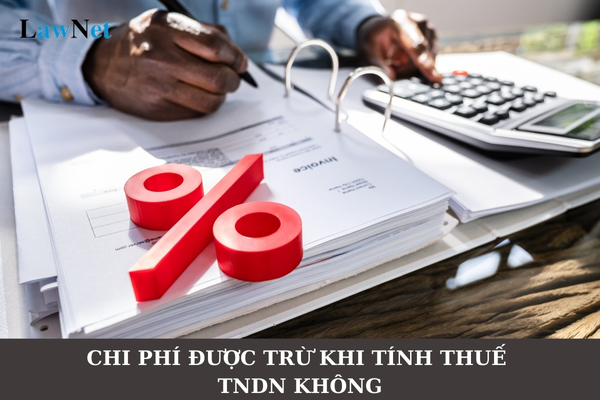Shall input value-added tax which has been credited be included in deductible expenses for determining corporate income tax in Vietnam?
Shall input value-added tax which has been credited be included in deductible expenses for determining corporate income tax in Vietnam?
Pursuant to Clause 2.37, Article 6 of Circular 78/2014/TT-BTC, as amended by Article 4 of Circular 96/2015/TT-BTC, the regulations are as follows:
Deductible and Non-deductible Expenses When Determining Taxable Income
...
- Non-deductible expenses when determining taxable income include:
...
2.37. Deducted or refunded input value-added tax; input VAT of fixed assets being automobiles with up to 9 seats exceeding the deductible limit as prescribed by legal documents on VAT; corporate income tax, except in cases where the company pays CIT on behalf of a foreign contractor under a contractor agreement where the foreign contractor's revenue does not include CIT; personal income tax, except in cases where a company enters into labor contracts stipulating that salaries and wages paid to employees do not include personal income tax.
Based on the above provisions, deducted input value-added tax is not included in deductible expenses when calculating corporate income tax (CIT).

Shall input value-added tax which has been credited be included in deductible expenses for determining corporate income tax in Vietnam? (Image from Internet)
How to determine the corporate income tax period in Vietnam?
Pursuant to Article 5 of the Law on Corporate Income Tax 2008, the corporate income tax period is determined as follows:
The corporate income tax period is determined according to the calendar year or fiscal year, except for cases where the corporate income tax period is determined for each time income arises. This applies to foreign enterprises including: (i) Foreign enterprises with a permanent establishment in Vietnam paying tax on taxable income arising in Vietnam that is not related to the operations of the permanent establishment, and (ii) Foreign enterprises without a permanent establishment in Vietnam paying tax on taxable income arising in Vietnam.
What income is exempt from corporate income tax in Vietnam?
Pursuant to Article 4 of the Law on Corporate Income Tax 2008, amended and supplemented by Clause 3, Article 1 of the Law on Amendments and Supplements to Business Income Tax 2013, Clause 2, Article 1 of Law No. 71/2014/QH13, income exempt from corporate income tax includes:
(1) Income from cultivation, livestock farming, aquaculture, processing of agricultural products, aquaculture, and salt production by cooperatives; income of cooperatives operating in agriculture, forestry, fishery, and salt in areas with difficult or extremely difficult socio-economic conditions; income of enterprises from cultivation, livestock farming, aquaculture, processing of agricultural products, aquaculture in areas with extremely difficult socio-economic conditions; income from fishing activities.
(2) Income from directly providing technical services for agriculture.
(3) Income from executing research and development contracts, products in the trial production phase, products from new technology first applied in Vietnam.
(4) Income from production, business, and service activities of enterprises with 30% or more of the average number of annual employees being disabled, rehabilitated persons, HIV/AIDS infected individuals, and with an average annual workforce of twenty or more, excluding businesses operating in finance, real estate.
(5) Income from vocational training activities dedicated to ethnic minorities, disabled individuals, children with particularly difficult circumstances, social evils prevention subjects.
(6) Income shared from capital contributions, joint ventures, or partnerships with domestic enterprises, after already paying corporate income tax as stipulated.
(7) Sponsorships received for use in education, scientific research, culture, arts, charity, humanitarian, and other social activities in Vietnam.
(8) Income from transferring certified emission reductions (CERs) of enterprises granted such certificates.
(9) Income from the tasks assigned by the Government of Vietnam to the Vietnam Development Bank in development and export credit activities; income from credit activities for the poor and other policy beneficiaries of the Vietnam Bank for Social Policies; income of state financial funds and other non-profit state funds as prescribed by law; income of organizations wholly owned by the state established by the Government of Vietnam to handle bad debts of Vietnamese credit institutions.
(10) Unallocated income of socialization establishments in education-training, health, and other socialization fields reserved for reinvestment to develop those establishments according to specialized law regulations in education-training, health, and other socialization fields; unallocated asset forming income of cooperatives established and operating according to regulations.
(11) Income from technology transfer prioritized for transfer to organizations, individuals in areas with extremely difficult socio-economic conditions.

